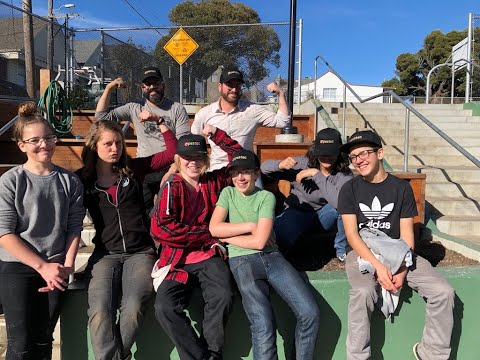Pollinator Crossing

Pestec's mission to improve the places we live and work includes our local schools. Students should understand the role pollinators have in our ecosystem. Pollinators are wildlife that do plants a service by moving pollen from one plant to another. Usually, while they are feeding on nectar or pollen.
Educating this next generation requires a mix of inspiration, curiosity, and SNACKS.
In support of Education Outside we provided fruit trees, pollinator-friendly plants, and human-power. These plants are in the ground and on their way to feeding the minds and bodies of San Francisco youth and their pollinator neighbors. Watch the video below of our volunteer day at Paul Revere Elementary.
Our goal is to help more California schools adopt pollinator gardens. We also want to show them how to manage pests in a way that reduces the risk to children and the environment.
Why Support Pollinators
- They need our help
- They are part of our local biodiversity
- They support native plants
- They help local gardens flourish
- We need them (wild insects and vertebrates pollinate seven crops worth about $1.25 billion annually)
Why Do it in Schools
- To teach the next generation about the interconnectedness of our environment
- To beautify our schools
- To foster curiosity
How You Can Support Pollinators
We urge you to use these tools and start your own pollinator garden. You can also connect with your neighbors and start a community pollinator garden. Learn what to plant at the SF Environment pollinator portal.
Be sure to download our Pollinator Crossing sign for use in your garden to show your support.
Please share this information with your friends, families, and co-workers. It will help us spread awareness of the importance of pollinators.
References and Related Links
UC IPM: Protecting Natural Enemies and Pollinators